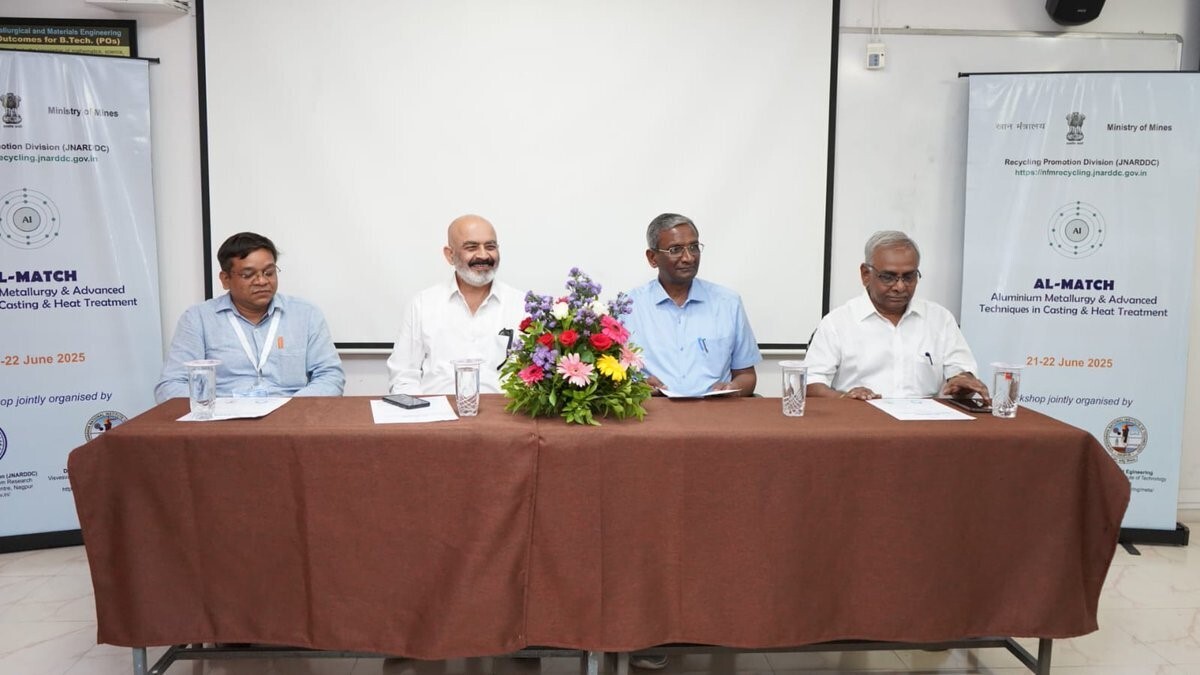

With a view to reducing the gap between industrial practice and academics, Visvesvaraya National Institute of Technology (VNIT) and the Jawaharlal Nehru Aluminium Research Development and Design Centre (JNARDDC) successfully hosted a two-day aluminium metallurgy workshop at VNIT and JNARDC campuses. The workshop was held on June 21-22 and witnessed the presence of industry professionals, researchers, and academia, reflecting an endeavour of collective unity in improving India's manufacturing capability.

The workshop, 'Aluminium – Metallurgy and Advanced Techniques in Casting and Heat Treatment (AL-MATCH)', was a fusion of experience and in-depth scientific know-how. Over 75 delegates from manufacturers, foundries, and extrusion houses gathered at the two campuses in Nagpur. Though similar initiatives have been held before by other behemoths in the aluminium industry, this workshop was on a much larger scale.
A blend of theory and practice
The inaugural session was graced with eminent personalities like Dr Prem Lal Patel, Director, VNIT Nagpur, and Dr Anupam Agnihotri, Director, JNARDDC. Dr D.R. Peshwe, Head of Department, Metallurgical & Materials Engineering, VNIT, and Mr R.N. Chouhan, Head, Recycling Promotion Division, JNARDDC, were present as well.
AL-MATCH was planned with the utmost care to provide a complete learning experience. The attendees were provided with hands-on training through live demonstrations, high-intensity lab sessions and advanced technical sessions on principal subjects like casting science, advanced heat treatment processes, performance testing of aluminium alloys, and defects analysis.
Also read: Improving the heat treatment of aluminum sheet coils on the course of the industry 4.0 concept
One of the session's highlights was the visit to JNARDDC's poly aluminium chloride (PAC) dross processing plant, conducted by scientist Dr Upendra Singh. The session shed significant light on waste valorisation, a crucial part of sustainable manufacturing. The session also posed the question of the Bureau of Indian Standards' (BIS) quality controls and compliance within secondary aluminium production and the overall thrust towards a circular economy.
A thumping success and a look ahead
JNARDDC has already held previous similar workshops this year in a more limited scope. However this is the first time they collaborated with a university for it, that too on such a large scale, and the result was an outstanding success.
Emboldened by the feedback, JNARDDC has already made an announcement for a second, bigger version of AL-MATCH. This event shall be organised on a pan-India scale in association with the Indian Institute of Technology (IIT) Hyderabad, and it is proposed to further extend the reach and intensity of this initiative. By building a higher level of awareness about aluminium metallurgy, such organisations are shaping a stronger, more resilient, and self-sufficient future for Indian industry.
Responses








